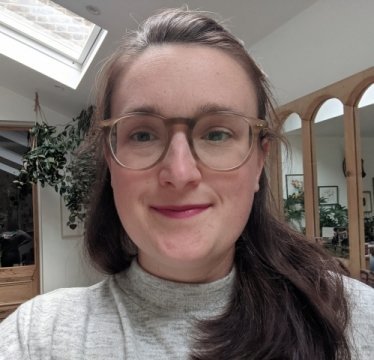Get to know me – with Ali Norrish

Why did you decide to join On Purpose as Programme Delivery Manager?
After working in an area of social impact I was deeply passionate about for five years, I wanted to bring in something different to refresh my connection with social change. However, I was definitely clear I would continue to only do work which means I can spend my working days - the majority of our lives - contributing to something which is both straightforwardly, strategically and systemically useful for making a fairer world. I think On Purpose does this in a really simple but significant way. I also love time-bound times to transform ourselves, and so the Associate Programme is very much up my street!
What were you up to before joining On Purpose?
Before On Purpose, I worked for five years in a startup charity I was deeply passionate about, with a mission to democratise Economics, making it something that everyone is invited to critically engage with. I researched the barriers to better conversations about economics in the public sphere, scaled a learning journey for young people exploring Economics as a public conversation about our future, and campaigned to raise awareness of the idea of economic literacy, seeing economics as a language that everyone has a right to understand and speak.
After this, I landed a dream project: working with Civic Square setting up a peer-led learning journey for twelve neighbourhood groups exploring Kate Raworth’s Doughnut Economics.
What are you passionate about?
I’m really interested in how we can design relational learning experiences around Economics. Economics is so important and is deeply relational - about people interacting - but there is a huge poverty around what ‘the economy’ means in the public imagination. We need to notice just how big the gap is between the significant way the economy is discussed and the lack of frameworks people have to grasp what ‘the economy’ actually refers to.
I’m passionate about this because the dominant stories around our economy are an example of deep narrative - these stories of scarcity and old hierarchies of power limit what we can imagine, how we think the world can work and how we relate to each other, all stopping us from addressing the climate crisis. I’m deeply interested in how people can feel their own power and use it to escape cycles of scarcity and grow their capacity to change.
If you went for a day out in London, where would you go (and what would you do)?
I’d probably end up on a muddy dog walk! A lovely one is by the Thames from Hammersmith to Putney Bridge and I’d hope to end up in a pub playing a board game with friends. I think my favourite place in London is the Barbican with its feeling of abundant space, dimly lit sofas, and space to dangle your feet above the water in their surreal bright green ponds.
